Ask Ethan: Which Fundamental Science Question Is The Most Important?

Out of five vital questions, which one should we most desire the answer to?
Despite all we’ve learned about physics, science, and the Universe before us, there are still some incredibly fundamental questions whose answers are still elusive. Each one is a challenge to humanity, and the answers are thoroughly uncertain, with tremendous implications depending on what the answer actually is. From our cosmic birth to the fundamental laws governing everything, and from the origin of life to what actually makes up the Universe, there is so much left to discover. If we could only know the answer to one, which one should we choose? That’s what our Patreon supporter Chris Shaw wants to know, as he asks:
If you could have a complete answer to one of these 5 questions what would it be?
* Did cosmic inflation happen or was there another process?
* Is earth the only place in the cosmos with life?
* How [can we] merge general relativity and quantum mechanics?
* What is dark energy and dark matter?
* How did life begin on Earth?
These are all incredible questions, and they’re all open questions that probe our deepest mysteries about the Universe. Here’s why each one matters.
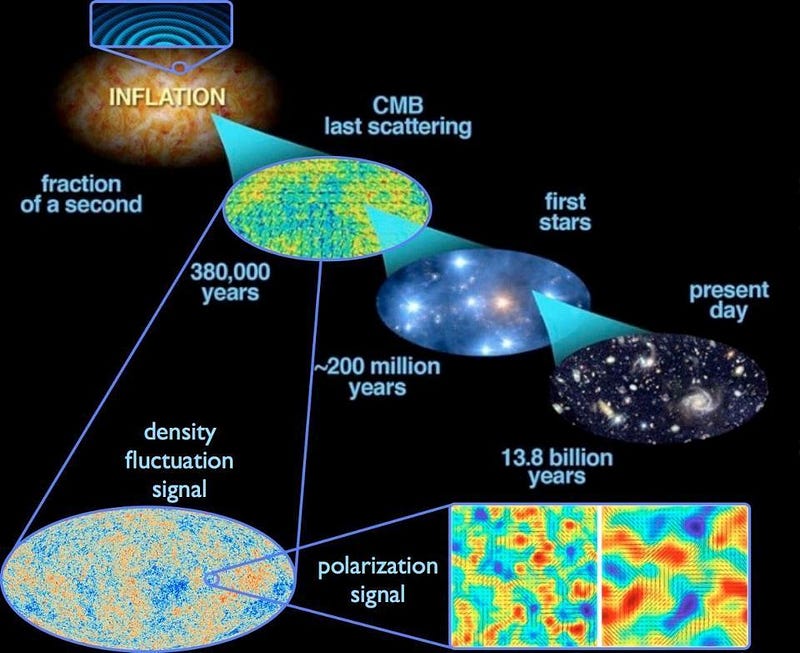
1.) Cosmic inflation: We know that the Big Bang happened, and that the hot Big Bang wasn’t the very beginning of the Universe. There are a number of finely-tuned, unexplained phenomena that need to be set up as initial conditions to give us the Universe we have today, or the Universe wouldn’t exist as-is. Cosmic inflation is the theory that provided the first accurate explanation for these conditions, reproduced the Big Bang, plus made a slew of other predictions, many of which have been confirmed to great precision. It would be great to know exactly what occurred before the hot Big Bang, and whether it was a particular variant of cosmic inflation, or something inflation-like that turns out to be quite different.
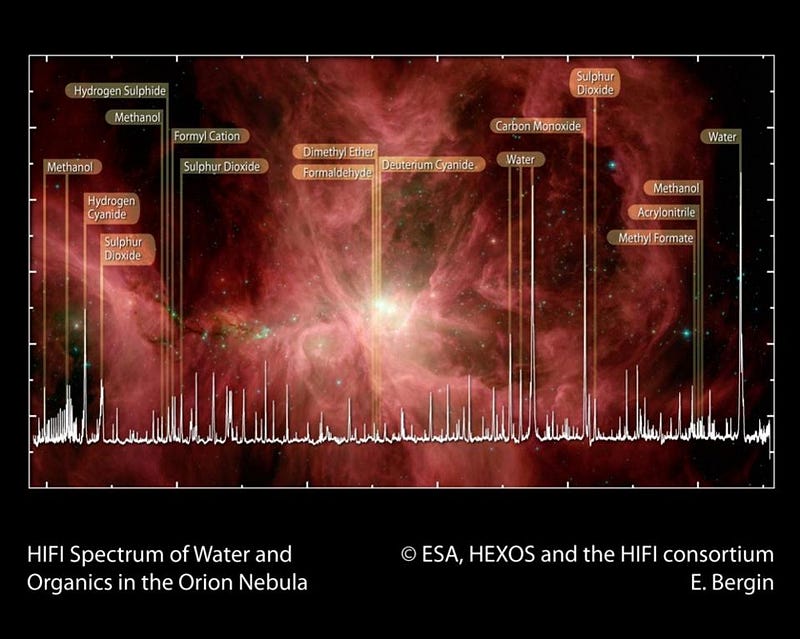
2.) Life beyond Earth: Surely, we can all agree that life exists on Earth. But is there any place beyond Earth that also has life? And what would be a good definition of life, anyway? Do other worlds in our Solar System, which certainly have the building blocks of life, have either past or present life on them? What about worlds around other stars? How likely are they or aren’t they to have life, and how advanced, by comparison to us, have they gotten? These are questions that we truly don’t know the answers to, even though we have extremely strong suspicions that all the same conditions that occurred here on Earth have occurred many trillions of times elsewhere in our Universe.
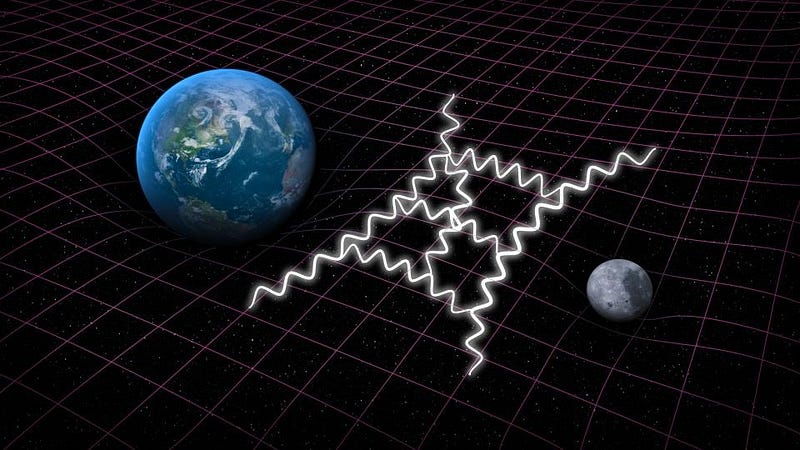
3.) Finding a theory of everything: We have two extremely successful theories describing the Universe, with General Relativity accounting for gravitation and Quantum Field Theory accounting for the properties of the Universe’s particles and their interactions. But if you passed an electron through a double slit, what would happen to its gravitational field? What happens at the singularity inside a black hole? And is spacetime fundamental, or is itself composed of discrete quanta? Without a quantum theory of gravity, and a theoretical merging of General Relativity and Quantum Field Theory, we may never know. Is it possible? We think so. Does our Universe actually have a theory of everything? Is gravity truly quantum in nature? That we don’t know.
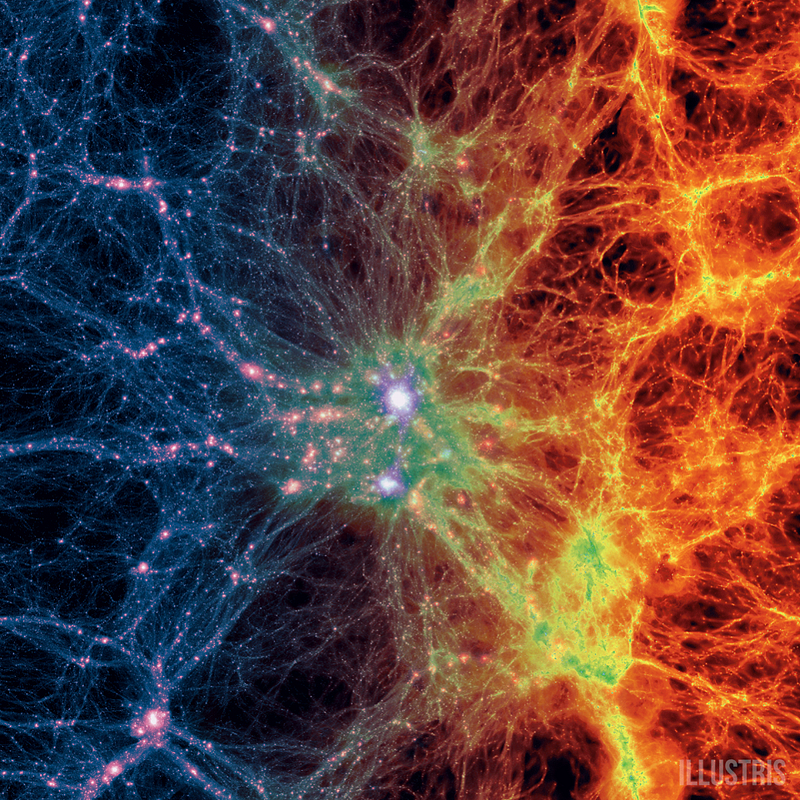
4.) Dark energy and dark matter: Do they exist? The evidence certainly strongly suggests it. What, exactly, are they? Those are big, open questions that we don’t know the answer to. Dark energy appears to be a constant form of energy uniformly distributed throughout space; dark matter appears to behave like a particle, clumping and clustering under the influence of gravitation. But is dark matter actually particle-based? Does dark matter interact with either itself or normal matter through any force other than gravitation? How did it come to be? And what about dark energy? Is it a property inherent to space itself? Is it a separate field? And why does it have the numerical value that it has? The answers to all of these have so far proved elusive.

5.) The origin of life: How did life on Earth begin? We know that the building blocks of life can be found throughout the galaxy, in interstellar space, and even in the Solar System. Complex, carbon-based molecules are found all over, from cyanide to sugars to ethyl formate, the last of which is the molecule that gives raspberries their characteristic smell. We’ve found meteorites originating from the asteroid belt with amino acids inside, including more than 60 that aren’t involved in life processes here on Earth. And finally, we’ve found circumstantial evidence supporting the idea that Earth-based life originated prior to our planet’s formation. Yet, we haven’t managed to create life from non-life to this point. And thus, we still don’t know how life on Earth began.

If we can magically snap our fingers and know the answer to one of these, which one should we pick? There are two important considerations:
- Which one is the “hardest problem” in terms of knowing how to find the answer, and
- Which one would be the most revolutionary and beneficial to our society?
We can throw out cosmic inflation, since we already have many strong lines of evidence that not only support inflation, but also tightly constrain which models of inflation are still valid. We’re too close, and if the next 20–30 years are kind to us, we may even learn how inflation occurred. For the same reason, we should throw out the questions of life beyond Earth, or how it arose. These are active questions we’re making huge progress on, and as much as I want to know that we’re not alone, the amount that we’re learning, both in terrestrial biology and astrobiology, is too important. When you learn the answer, you miss out on all the lessons of finding things out, and over the rest of our lifetimes, we’re likely to see the answers to these questions slowly revealed.

Which leaves the merger of General Relativity with the quantum Universe, and the origin/nature of dark matter and dark energy. These are both incredibly hard problems that have many ideas behind them, but realistically, have seen very little progress. It’s not even a certainty that our Universe has a quantum theory of gravity, or that dark matter and dark energy truly exist, although there are many good reasons to believe all of these are so. All would be revolutionary, and as with all fundamental physical discoveries, the societal benefits are hard to envision.
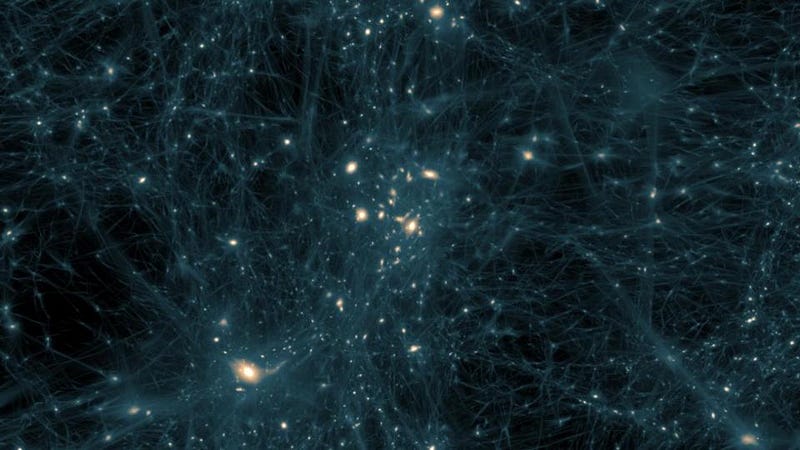
But if we had to choose one, I’d pick the knowledge of dark energy/dark matter. If dark matter turns out to be a particle, it’s possible that we’ll be able to manipulate it in a new way that could be tremendously beneficial to society. It could lead to free, abundant energy, not just here on Earth but anywhere we travel to in the galaxy. It may be as efficient as matter-antimatter annihilation, and if we can harness it, it’ll be there no matter where we go. It’s the majority of the Universe, and our attempts to detect it have all come up empty thus far. It may turn out that we’re looking in all the wrong ways, but until we look in the right way, we have no way of knowing.
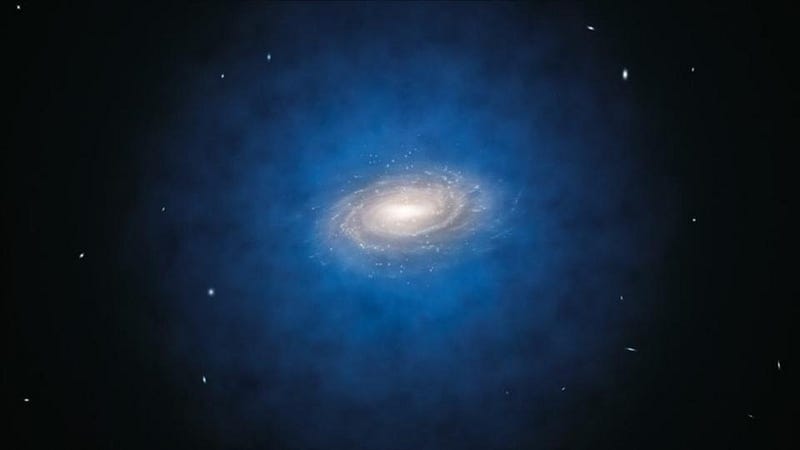
There aren’t right and wrong answers here, just choices. The important thing is to realize what we know, what we’re wondering about, what the possibilities are, and what we’re doing to try to learn the definitive answers. If we could simply know something that’s far out of reach today, it could guide us down the correct path. But don’t underestimate the value of the investigative process, or the power of the lessons learned as we make these discoveries. The pleasure lies not just in knowing, but in the act of finding things out!
Send in your Ask Ethan questions to startswithabang at gmail dot com!
Ethan Siegel is the author of Beyond the Galaxy and Treknology. You can pre-order his third book, currently in development: the Encyclopaedia Cosmologica.




